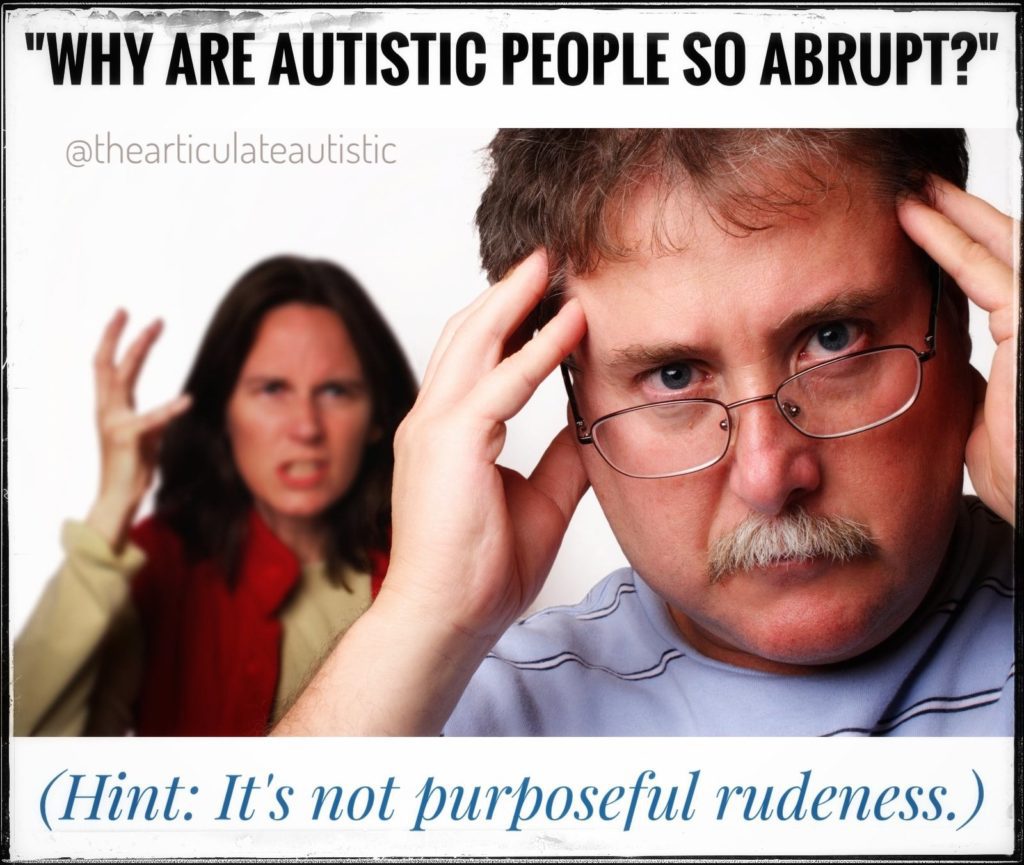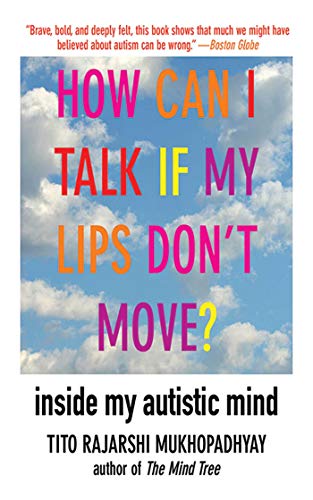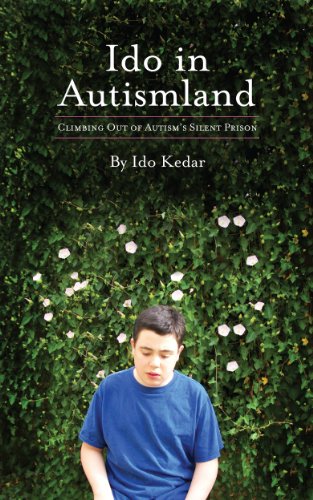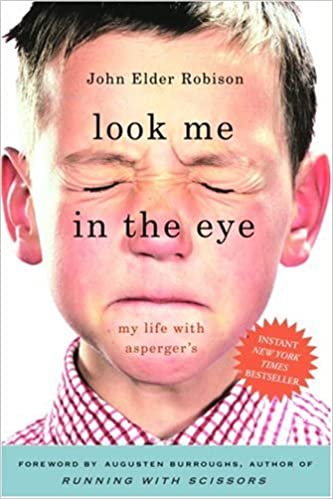“Why Are Autistic People So Abrupt?” – (Hint: It’s Not Purposeful Rudeness)

Abrupt. I hear this word a lot. Autistic people are seen by non-autistic people as abrupt, blunt, and direct.
In the non-autistic world, getting to the point right away without any preamble is considered rude. For most autistics, however, this is the preferred way to communicate.
Yes, it’s more efficient and causes fewer misunderstandings, BUT there is another reason so many of us do this that you may not have considered:
If we don’t say what we need to say right that second, it’s going to fly right out of our heads, and it could have been REALLY important!
For example, when I was a kid, and somebody asked me to pass a message on to someone else, I would say the message over and over and over in my head until I could write it down or blurt it out to the person.
If I didn’t do either of those things, the message would be gone. I wouldn’t remember at all, and then, not only would I not pass on the message, I would get in trouble and told I forgot “on purpose”, and everybody would be mad at me.
Let’s say somebody told me, “Tell your mother I said, ‘Hi’.” I would repeat it in my head as I walked home.
I would have to tune out everything else to keep this one thought in my head.
(Article continues below.)
The best way to improve communication with your autistic loved one is to understand how your autistic loved one’s mind works! Intentions, motivations, and personal expressions (facial expressions or lack thereof, body language, etc.), are often quite different in autistic people than they are in neurotypical people.
Experience a better understanding of your autistic loved one by reading books about life from an autistic perspective as well as stories that feature autistic characters. You’ll have so many “Ah ha!” moments and start seeing your autistic loved one in a different light (and you’ll have a better understanding of their behaviors, which you may have been misinterpreting up until now).
Books I recommend for a better understanding of your autistic loved one:
For me, with my terrible memory, it was like trying to carry a full glass of water in a colander! The slightest distraction, and it would all leak out!
Then, as soon as I saw my mother (or whomever it was that I was to owl the message along to), I would run up to her and say, “UncleJohnSaysHi”. Then, in my mind, I would collapse with relief because I didn’t have to carry the sieve full of water anymore, and I could rest.
But, no. No. No rest for me. Then, after successfully delivering the message without forgetting, which was a Herculean effort, I might add, I would be admonished for being too abrupt.
Lady, I just walked through the fires of Mordor to bring you this gold ring and drop it at your feet, and instead of being grateful, you get mad because I didn’t drop it in the exact right place?
I get how blurting out a message or request looks to non-autistic people now, but back then, that is exactly how I thought!
Why are you being so trivial?? (Which, non-autistics, you weren’t, but that’s how it felt.)
So, yeah. That’s why we’re so abrupt.
Follow me on Instagram.
Want downloadable, PDF-format copies of these blog posts to print and use with your loved ones or small class? Click here to become a Patreon supporter!









